Annual Applied Complexity Network and Board of Trustees Symposium: The Complexity of Intelligence - New Science for Hybrid Intelligence - Speakers: Difference between revisions
From Santa Fe Institute Events Wiki
mNo edit summary |
mNo edit summary |
||
| Line 17: | Line 17: | ||
[[File:RussAngold2.jpg|left|200px]] | [[File:RussAngold2.jpg|left|200px]] | ||
As a Founder of Ekso Bionics, Russ Angold has been developing wearable robotics for over twelve years. Russ holds numerous human augmentation patents and his breakthroughs have transformed Exoskeletons from science fiction to practical products helping individuals with paralysis from injury or stroke rehabilitate and recover. From the founding of Ekso Bionics Russ has served several roles including Vice President of Engineering and Chief Technology Officer. Most recently, as President of Ekso Works, Russ continues to advance exoskeleton technology for a wide variety of industrial and construction applications. Russ has a diverse background working in Industrial Automation, Consumer Products, and Construction fields as well as serving as the principal investigator on several DARPA and DOD Exoskeleton programs. Angold is a registered Professional Mechanical Engineer and holds a bachelor’s degree in Bio Resource and Agricultural Engineering from California Polytechnic State University, San Luis Obispo. | As a Founder of Ekso Bionics, Russ Angold has been developing wearable robotics for over twelve years. Russ holds numerous human augmentation patents and his breakthroughs have transformed Exoskeletons from science fiction to practical products helping individuals with paralysis from injury or stroke rehabilitate and recover. From the founding of Ekso Bionics Russ has served several roles including Vice President of Engineering and Chief Technology Officer. Most recently, as President of Ekso Works, Russ continues to advance exoskeleton technology for a wide variety of industrial and construction applications. Russ has a diverse background working in Industrial Automation, Consumer Products, and Construction fields as well as serving as the principal investigator on several DARPA and DOD Exoskeleton programs. Angold is a registered Professional Mechanical Engineer and holds a bachelor’s degree in Bio Resource and Agricultural Engineering from California Polytechnic State University, San Luis Obispo. | ||
<div style="clear: both;"></div> | |||
<hr /> | |||
[https://www.santafe.edu/people/profile/nihat-ay '''Nihat Ay''']<br /> | |||
''Santa Fe Institute, Resident Faculty'' | |||
[[File:NihatAy.jpg|left|200px]] | |||
Nihat studied mathematics and physics at the Ruhr University Bochum and received his Ph.D. in mathematics from the University of Leipzig in 2001. In 2003 and 2004 he was a postdoctoral fellow at the Santa Fe Institute (SFI) and at the Redwood Neuroscience Institute (now the Redwood Center for Theoretical Neuroscience at UC Berkeley). After his postdoctoral stay in the U.S. he became a faculty member of the Mathematical Institute of the Friedrich Alexander University in Erlangen where he earned his habilitation in mathematics. Since September 2005, he has worked at the Max Planck Institute for Mathematics in the Sciences in Leipzig where he heads the Information Theory of Cognitive Systems research group. He is also affiliated with the University of Leipzig as Honorary Professor. In July 2014 he became a part-time resident Professor at SFI, spending time both in Santa Fe and Leipzig. | |||
<div style="clear: both;"></div> | <div style="clear: both;"></div> | ||
| Line 158: | Line 167: | ||
[https://www.santafe.edu/people/profile/david-wolpert '''David Wolpert''']<br /> | [https://www.santafe.edu/people/profile/david-wolpert '''David Wolpert''']<br /> | ||
''Santa Fe Institute, Resident Faculty'' | ''Santa Fe Institute, Resident Faculty'' | ||
[[File: | [[File:DavidWolpert.jpg|left|200px]] | ||
David Wolpert is an IEEE fellow, is the author of three books and more than 200 papers, has three patents, is an associate editor at more than half a dozen journals, and has received numerous awards. He has more than 17,000 citations in a wide range of fields, including physics, machine learning, game theory, information theory, the therodynamics of computation, and distributed optimization. In particular, his machine learning technique of stacking was instrumental in both winning entries for the Netflix competition, and his papers on the no free lunch theorems jointly have more than 7,000 citations (details). | David Wolpert is an IEEE fellow, is the author of three books and more than 200 papers, has three patents, is an associate editor at more than half a dozen journals, and has received numerous awards. He has more than 17,000 citations in a wide range of fields, including physics, machine learning, game theory, information theory, the therodynamics of computation, and distributed optimization. In particular, his machine learning technique of stacking was instrumental in both winning entries for the Netflix competition, and his papers on the no free lunch theorems jointly have more than 7,000 citations (details). | ||
Revision as of 17:30, 31 October 2017
| Navigation |
Symposium
November 3 – 4, 2017
Speakers & Panelists include:
Russ Angold
Ekso Bionics, Co-Founder
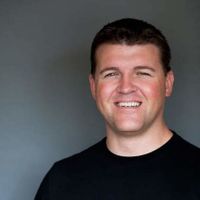
As a Founder of Ekso Bionics, Russ Angold has been developing wearable robotics for over twelve years. Russ holds numerous human augmentation patents and his breakthroughs have transformed Exoskeletons from science fiction to practical products helping individuals with paralysis from injury or stroke rehabilitate and recover. From the founding of Ekso Bionics Russ has served several roles including Vice President of Engineering and Chief Technology Officer. Most recently, as President of Ekso Works, Russ continues to advance exoskeleton technology for a wide variety of industrial and construction applications. Russ has a diverse background working in Industrial Automation, Consumer Products, and Construction fields as well as serving as the principal investigator on several DARPA and DOD Exoskeleton programs. Angold is a registered Professional Mechanical Engineer and holds a bachelor’s degree in Bio Resource and Agricultural Engineering from California Polytechnic State University, San Luis Obispo.
Nihat Ay
Santa Fe Institute, Resident Faculty
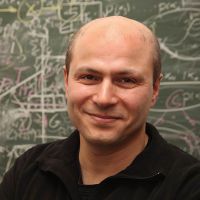
Nihat studied mathematics and physics at the Ruhr University Bochum and received his Ph.D. in mathematics from the University of Leipzig in 2001. In 2003 and 2004 he was a postdoctoral fellow at the Santa Fe Institute (SFI) and at the Redwood Neuroscience Institute (now the Redwood Center for Theoretical Neuroscience at UC Berkeley). After his postdoctoral stay in the U.S. he became a faculty member of the Mathematical Institute of the Friedrich Alexander University in Erlangen where he earned his habilitation in mathematics. Since September 2005, he has worked at the Max Planck Institute for Mathematics in the Sciences in Leipzig where he heads the Information Theory of Cognitive Systems research group. He is also affiliated with the University of Leipzig as Honorary Professor. In July 2014 he became a part-time resident Professor at SFI, spending time both in Santa Fe and Leipzig.
Adam Bly
Spotify, Vice President of Data

For the past two and a half years, Adam Bly led data at Spotify as VP Data. Previously, he founded and was CEO of Seed Scientific, the advanced analytics firm, which was acquired by Spotify in 2015. Named a Young Global Leader by the World Economic Forum, he has lectured at the United Nations, MIT, NASA, The Royal Society, and the World Economic Forum on the role of data and science in society. He was a Visiting Senior Fellow in Science, Technology and Society at Harvard Kennedy School, served as Vice Chair of the WEF Global Agenda Council on Complex Systems, has advised Fortune 500 companies and national political campaigns on data strategy and science policy, and co-organized Design and the Elastic Mind, the landmark exhibition at MoMA that linked science and design. He founded and served as Editor-in-Chief of the science magazine, Seed, and is the author of Science is Culture: Conversations at the New Intersection of Science and Society (HarperCollins). Born in Montreal, he began his career researching cancer metastasis at the National Research Council Canada. He lives in New York City and just founded a new data and artificial intelligence startup that is currently in stealth mode.
Esther Dyson
Way to Wellville, Executive Founder; Santa Fe Institute, Former Trustee

Esther Dyson is the executive founder of Way to Wellville, a 10-year, five-community nonprofit project devoted to implementing, illustrating and modeling the beneficial impacts, both social and financial, of investing in health (vs. renting it and attempting to retrieve it via health care). Dyson is also an active tech investor, based on 30-odd years in the sector. From 1997 to 2012, she was a loving trustee of the Santa Fe Institute.
Jessica Flack
Santa Fe Institute, Professor and Director of Collective Computation Group
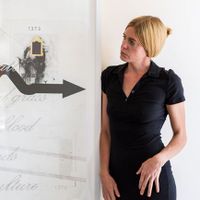
Jessica Flack is a professor at the Santa Fe Institute and the director of SFI's Collective Computation Group (C4). Research in C4 draws on evolutionary theory, cognitive science and behavior, statistical mechanics, information theory, and theoretical computer science to study information processing and collective computation in nature and their roles in emergence of robust structure and function in biological and social systems. Flack works on fundamental problems in evolutionary theory concerning collective computation & information aggregation at all levels of biological organization—from societies of cells to societies of individuals to machine-human hybrid societies. This includes the role of collective computation in the origin of space and time scales in adaptive systems. A central idea is that noisy information processors in adaptive systems construct their macroscopic worlds through collective coarse-graining in evolutionary and/or learning time. Flack was previously the founding director of University of Wisconsin-Madison's Center for Complexity and Collective Computation in the Wisconsin Institutes for Discovery. Flack's work has been covered by scientists and science journalists in many publications and media outlets, including the BBC, NPR, Nature, Science, The Economist, New Scientist, Current Biology, The Atlantic, and Quanta Magazine.
Alison Gopnik
University of California at Berkeley, Professor

Alison Gopnik is a professor of psychology and affiliate professor of philosophy at the University of California at Berkeley, where she has taught since 1988. She received her BA from McGill University and her PhD. from Oxford University. She is a world leader in cognitive science, particularly the study of children’s learning and development. She is the author of over 100 journal articles and several books including the bestselling and critically acclaimed popular books: The Scientist in the Crib (William Morrow, 1999), The Philosophical Baby; What Children’s Minds Tell us about Love, Truth and the Meaning of Life (Farrar, Strauss, and Giroux, 2009), and The Gardener and the Carpenter: What the New Science of Child Development Tells Us about the Relationship Between Parents and Children (Farrar, Strauss, and Giroux, 2016). She is a fellow of the Cognitive Science Society and a member of the American Academy of Arts and Sciences.
She writes the Mind and Matter science column for the Wall Street Journal. And she has also written widely about cognitive science and psychology for The New Yorker, Science, The New York Times, The Atlantic, The Times Literary Supplement, The New York Review of Books, New Scientist, and Slate, among others. She has frequently appeared on TV and radio including “The Charlie Rose Show” and “The Colbert Report.” Her TED talk has been seen over 2.75 million times. She has three sons and three grandchildren and lives in Berkeley, California with her husband Alvy Ray Smith.
Mark Johnson
Descartes Labs, Co-Founder & CEO

Mark is a Co-Founder and CEO of Descartes Labs. Prior to Descartes, Mark was CEO at Zite, a personalized news app, which he first sold to CNN in August, 2011, and then to Flipboard in March, 2014. Before that, Mark worked as a product manager at Bing, Powerset (sold to Microsoft), Kosmix (sold to Walmart), SideStep (sold to Kayak), and SAP. Mark studied philosophy at Stanford University.
David Krakauer
Santa Fe Institute, President and William H. Miller Professor of Complex Systems
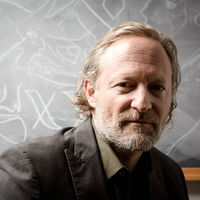
David’s research explores the evolution of intelligence on earth. This includes studying the evolution of genetic, neural, linguistic, social and cultural mechanisms supporting memory and information processing, and exploring their shared properties. He served as the founding Director of the Wisconsin Institute for Discovery, the Co-Director of the Center for Complexity and Collective Computation, and Professor of mathematical genetics all at the University of Wisconsin, Madison. David has been a visiting fellow at the Genomics Frontiers Institute at the University of Pennsylvania, a Sage Fellow at the Sage Center for the Study of the Mind at the University of Santa Barbara, a long-term Fellow of the Institute for Advanced Study in Princeton, and visiting Professor of Evolution at Princeton University. In 2012 Dr. Krakauer was included in the Wired Magazine Smart List as one of 50 people "who will change the World.” In 2016 Krakauer was included in Entrepreneur Magazine’s visionary Leaders advancing global research and business.
John Krakauer
Johns Hopkins University, School of Medicine, Professor & Director of the Brain, Learning, Animation, and Movement Lab
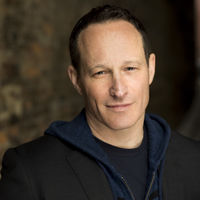
Dr. Krakauer is currently John C. Malone Professor of Neurology, Neuroscience, and Physical Medicine and Rehabilitation, and Director of the Brain, Learning, Animation, and Movement Lab (www.BLAM-lab.org) at The Johns Hopkins University School of Medicine. His areas of research interest are: (1) Experimental and computational studies of motor control and motor learning in humans (2) Tracking long-term motor skill learning and its relation to higher cognitive processes such as decision-making. (3) Prediction of motor recovery after stroke (4) Mechanisms of spontaneous motor recovery after stroke in humans and in mouse models (5) New neuro-rehabilitation approaches for patients in the first 3 months after stroke. Dr. Krakauer is also co-founder of the video gaming company Max and Haley, and of the creative engineering Hopkins-based project named KATA. KATA and M&H are both predicated on the idea that animal movement based on real physics is highly pleasurable and that this pleasure is hugely heightened when the animal movement is under the control of our own movements. A simulated dolphin and other cetaceans developed by KATA has led to a therapeutic game, interfaced with an FDA-approved 3D exoskeletal robot, which is being used in an ongoing multi-site rehabilitation trial for early stroke recovery. Dr. Krakauer’s book, Broken Movement: The Neurobiology of Motor Recovery after Stroke, will be published by MIT Press in November of 2017.
Michael Mauboussin
BlueMountain Capital Management, Director of Research; Santa Fe Institute, Chairman of the Board
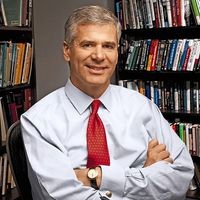
Prior to joining BlueMountain in July of 2017, he was a Managing Director and Head of Global Financial Strategies at Credit Suisse. Before rejoining Credit Suisse, he was Chief Investment Strategist at Legg Mason Capital Management from 2004-2012. Mr. Mauboussin originally joined Credit Suisse in 1992 as a packaged food industry analyst and was named Chief U.S. Investment Strategist in 1999. He is a former president of the Consumer Analyst Group of New York and was repeatedly named to Institutional Investor's All-America Research Team and The Wall Street Journal All-Star survey in the food industry group. Mr. Mauboussin is the author of The Success Equation: Untangling Skill and Luck in Business, Sports, and Investing, Think Twice: Harnessing the Power of Counterintuition, and More Than You Know: Finding Financial Wisdom in Unconventional Places-Updated and Expanded. He is also co-author, with Alfred Rappaport, of Expectations Investing: Reading Stock Prices for Better Returns. Mr. Mauboussin has been an adjunct professor of finance at Columbia Business School since 1993 and is on the faculty of the Heilbrunn Center for Graham and Dodd Investing. He earned an A.B. from Georgetown University.
Melanie Mitchell
Portland State University, Professor; Santa Fe Institute, External Professor
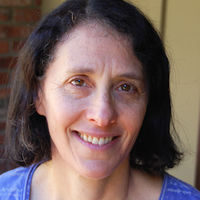
Melanie Mitchell is Professor of Computer Science at Portland State University, and External Professor and Member of the Science Board at the Santa Fe Institute. She attended Brown University, where she majored in mathematics and did research in astronomy, and the University of Michigan, where she received a Ph.D. in computer science, Her dissertation, in collaboration with her advisor Douglas Hofstadter, was the development of Copycat, a computer program that makes analogies. She has held faculty or professional positions at the University of Michigan, the Santa Fe Institute, Los Alamos National Laboratory, the OGI School of Science and Engineering, and Portland State University. She is the author or editor of five books and over 80 scholarly papers in the fields of artificial intelligence, cognitive science, and complex systems. Her most recent book, Complexity: A Guided Tour (Oxford, 2009), won the 2010 Phi Beta Kappa Science Book Award. It was also named by Amazon.com as one of the ten best science books of 2009, and was longlisted for the Royal Society's 2010 book prize. Melanie originated the Santa Fe Institute's Complexity Explorer project, which offers online courses and other educational resources related to the field of complex systems.
Michael Nielsen
Y Combinator Research, Research Fellow
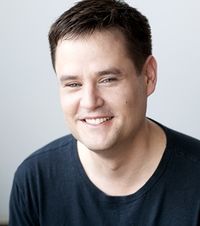
Michael Nielsen is a researcher working on tools that help people think and create, both individually and collectively. He co-authored the standard text on quantum computing, and has written widely-used books about open science and about neural networks. He lives in San Francisco.
James Pallotta
Raptor Group, Chairman and Managing Director

Mr. Pallotta began his professional career in 1983 at Essex Investment Management Company, Inc. in Boston and began directing client capital in January 1987. Mr. Pallotta joined Tudor Investment Corporation as the Managing Director of the U.S. Equity Securities Group in 1993. He was a member of the Management Committee and was named Vice-Chairman in 2005. At Tudor, Mr. Pallotta was the principal portfolio manager for Raptor Global Funds, which he launched in 1993 with $200 million in assets under management. At its peak, Mr. Pallotta was responsible for managing in excess of $11 billion of assets under the Raptor strategy. He served as one of three members on Tudor Ventures’ Investment Committee. In 2009, Mr. Pallotta founded Raptor Group, a Boston-based family office firm. Mr. Pallotta is President and Chairman of AS Roma as well as owner and executive board member of the Boston Celtics. He serves on the MIT Media Lab Advisory Council and is also a board member of certain charitable organizations including New Profit, Inc., American Academy in Rome and the Institute of Contemporary Art, Boston. He is also a board member of Northeastern University. Mr. Pallotta received a BBA in Finance from the University of Massachusetts and an MBA with concentration in accounting from Northeastern University.
Tomaso Poggio
Massachusetts Institute for Technology, Eugene McDermott Professor & Director of The Center for Brains, Minds, and Machines
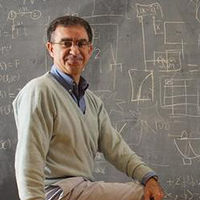
Tomaso A. Poggio, is the Eugene McDermott Professor in the Dept. of Brain & Cognitive Sciences at MIT and the director of the NSF Center for Brains, Minds and Machines at MIT. He is a member of the Computer Science and Artificial Intelligence Laboratory and of the McGovern Brain Institute. He received the Laurea Honoris Causa from the University of Pavia for the Volta Bicentennial, the 2003 Gabor Award, the Okawa Prize 2009, the AAAS Fellowship and the 2014 Swartz Prize for Theoretical and Computational Neuroscience. A former Corporate Fellow of Thinking Machines Corporation and a former director of PHZ Capital Partners, Inc. and of Mobileye, he was involved in starting, or investing in, several other high tech companies including Arris Pharmaceutical, nFX, Imagen, Digital Persona, and Deep Mind.
Daniel Rockmore
Dartmouth College, Associate Dean for the Sciences & Director of the Neukom Institute for Computational Science; Santa Fe Institute, External Professor
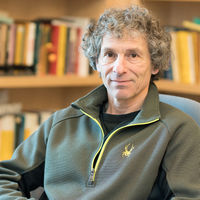
Dan Rockmore is Associate Dean for the Sciences and the William H. Neukom 1964 Distinguished Professor Computational Science at Dartmouth College, where he is also the director of the Neukom Institute for Computational Science, and professor of mathematics and computer science. He is editor of the recently released volume, "What are the Arts and Sciences? A Guide for the Curious," from UPNE. His current research interests include harmonic analysis, computational cultural evolution, and the machine analysis of text.
Patrick Shafto
Rutgers University - Newark, Professor
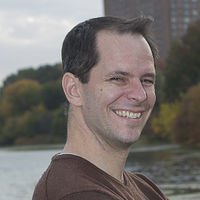
Patrick Shafto is the Henry Rutgers Term Chair in Data Science and Associate Professor of Mathematics and Computer Science at Rutgers University - Newark. Research in his lab focuses on understanding learning from the perspective of humans and machines, with a specific focus on leveraging our understanding of perception, cognition, and social reasoning to facilitate human-machine cooperation. He has published papers and presented research at conferences across fields, including Computer Science, Cognitive Science, Cognitive and Developmental Psychology, Vision, Education, and Philosophy. He has received numerous honors and awards including an NSF CAREER award and his research has formed the basis for a successful data science start-up companies. His research is supported by multiple NSF directorates and the DARPA XAI program.
Graham Spencer
GV, Managing Partner; Santa Fe Institute, Trustee
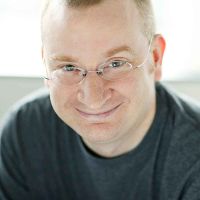
Graham Spencer was an engineering director at Google following the 2006 acquisition of JotSpot, which he co-founded with Joe Kraus. Graham was one of the original six founders of Excite.com and was the chief technology officer of the company until its sale to @Home. In 1999, Graham left Excite@Home to co-found DigitalConsumer.org, a 50,000-member non-profit consumer organization dedicated to protecting fair-use rights for digital media. Graham is also on the board of the Santa Fe Institute.
Brendan Tracey
Santa Fe Institute, Program Postdoctoral Fellow
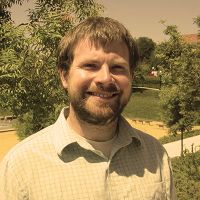
Brendan Tracey is primarily interested in the application of non-traditional ideas to engineering analysis and design. At the institute, he is researching Multi-Information Source Optimization (MISO). He received a B.S. in Mechanical Engineering from the University of Rochester and completed his Ph. D. in Aeronautics and Astronautics from Stanford University. He is a postdoctoral fellow with the Santa Fe Institute and the Department of Aeronautics and Astronautics at the Massachusetts Institute of Technology.
David Wolpert
Santa Fe Institute, Resident Faculty
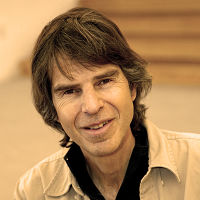
David Wolpert is an IEEE fellow, is the author of three books and more than 200 papers, has three patents, is an associate editor at more than half a dozen journals, and has received numerous awards. He has more than 17,000 citations in a wide range of fields, including physics, machine learning, game theory, information theory, the therodynamics of computation, and distributed optimization. In particular, his machine learning technique of stacking was instrumental in both winning entries for the Netflix competition, and his papers on the no free lunch theorems jointly have more than 7,000 citations (details). He is a world expert on using nonequilibrium statistical physics to analyze the thermodynamics of computing systems; extending game theory to model humans operating in complex engineered systems; exploiting machine learning to improve optimization; and Monte Carlo methods. He is currently a member of the resident faculty at the Santa Fe Institute. Previously he was the Ulam Scholar at the Center for Nonlinear Studies at Los Alamos National Laboratory, and before that he was at the NASA Ames Research Center and was a consulting professor at Stanford University, where he formed the Collective Intelligence Group. He has worked at IBM and at a data mining startup, and he is external faculty at numerous international institutions. His degrees in physics are from Princeton University and the University of California.
